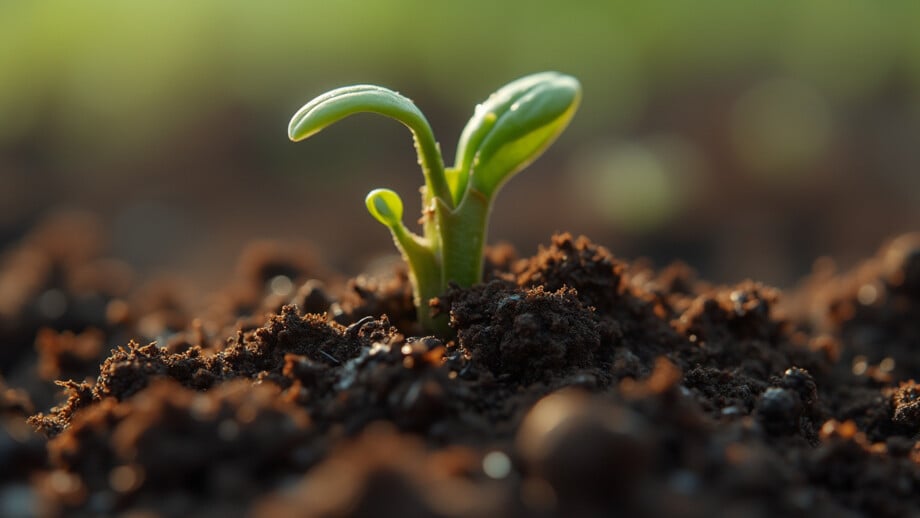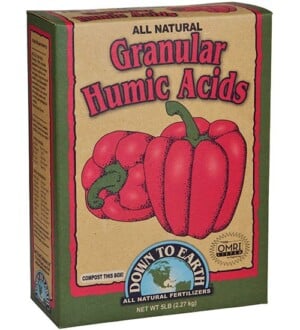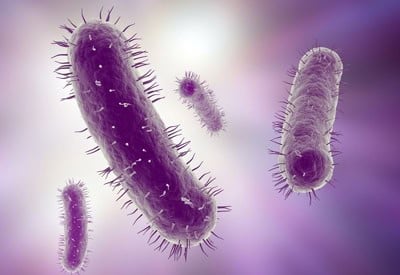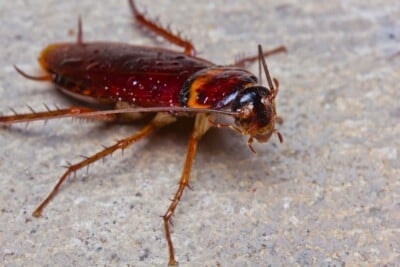What is Compost: A Complete Guide to Composting at Home
What is compost? Soil amendment? Decayed organic matter? Fertilizer? The answers might surprise you.

Composting is the process in which organic matter such as leaves and food scraps breaks down into soil.
It is an excellent method to recycle waste from your yard and kitchen while also enriching the soil in your garden, enhancing its ability to retain water, and preventing erosion.
Composting, despite its intimidating reputation, is actually rather easy to do and can be a very satisfying hobby especially if you enjoy gardening and care about the environment.
You’ll be surprised at just how simple it is to compost, even in small spaces. It can also teach you what you can drop off at your local composting center instead.
Regardless of why you’re looking to know what compost is and how to do composting, you’ll find it all here in this complete guide to help you get started today.
What is Compost?
Composting is a broad term used to explain the process of recycling organic materials.
When organic materials such as food scraps, leaves, and animal products decompose properly, you end up with compost.
It is a nutrient-rich material that looks like dirt and can be used to improve soil and support plant growth.
Composting merely accelerates the decomposition process by creating the perfect environment for bacteria, fungus, and other insects such as worms, sowbugs, and nematodes to do their work.
Compost is the term used to describe the final decomposed material, which resembles fertile garden soil.
Compost is full of nutrients and is often called “black gold” by farmers. It can be used for gardening, horticulture, and farming.
In nature, this process takes time, but we can speed it up by creating the right conditions that contribute to accelerated decomposition.
We can produce a nutrient-rich substance that may be utilized as natural fertilizer for our soil by mixing organic material with carbon (browns) and nitrogen (greens), as well as a lot of air and water.
Compost is More Than Just Decayed Vegetable Matter
Most gardeners think of compost as what’s left when vegetable matter decays. That’s pretty close. But animal matter will also compost and a number of states now compost animals killed on highways.
Manures can also be composted but they are still called manure, not compost.
The decay of organic matter involves more than the physical shredding and chopping into microscopic pieces.
It’s also the chemical and biological transformation. Most of this transformative work is done by micro-organisms, though some larger organisms including various insects and earthworms can also be involved at different stages.
In the simplest terms, decay occurs when these organisms eat organic matter — literally in the case of earthworms, more figuratively in the case of micro-organisms — and excrete it.
Most molecules may pass through the systems of numerous organisms, sometimes emerging unchanged, but eventually undergoing numerous chemical changes.
The result is rich, dark and crumbly like good earth which is what it smells like. But it contains a much higher concentration of beneficial microbes than does ordinary soil.
Why You Should Consider Composting
Composting is a rewarding process for many reasons. Here’s why you should consider composting at home:
Reduces Methane Emissions
Composting lets us recycle our kitchen scraps instead of throwing them away. Currently, around one-third of our waste is made up of food scraps and yard debris, both of which can be composted.
Making compost prevents these items from ending up in landfills, where they take up space and emit powerful greenhouse gases like methane.
Composting reduces landfill methane emissions and reduces our carbon impact.
Enriches Soil
Compost aids in the retention of moisture and nutrients in the soil. Also, it breaks up compacted soil, which helps to reduce the risk of erosion.
Composting, in general, improves soil quality, helps soil retain moisture, and reduces the incidence of plant diseases and pests.
Reduces Need for Chemical Fertilizers
Compost doesn’t contain any harmful chemicals as many synthetic fertilizers do, and it adds organic matter to your soil.

How Composting Works
Overall, composting is straightforward and just takes a few steps to begin. These are just some of the benefits of composting.
If you’re interested to know how to start composting, it’s important to understand how it works. Let’s look at what goes into composting to understand it better:
Compost Ingredients
Organisms that break down organic waste need four important things to survive and thrive. These are water, air, nitrogen, and carbon.
Since all materials that can be composted contain carbon and varying amounts of nitrogen, the key to making good compost is to use the right mix of materials to get the best ratio of carbon to nitrogen and to maintain the right amount of air and water.
Your pile will get drier and take longer to decompose if it contains too much carbon-rich stuff.
Compost piles that include an excessive amount of nitrogen-rich material are more likely to be slimy, wet, and stinky.
Fortunately, these issues can be quickly fixed by appropriately introducing carbon- or nitrogen-rich material.
Nitrogen (Greens)
Nitrogen is one of the fundamental building blocks of life and is required for the growth and reproduction of plants and animals alike.
The ratio of nitrogen to carbon is often higher in fresh organic material which is often referred to as greens.
If you have a lot of greens in your compost pile, the organisms that break down the organic matter will be able to thrive and reproduce more quickly. Fresh grass clippings, food scraps, and coffee grounds are some examples of household greens you may add to your home compost pile.
Carbon (Browns)
Carbon is another necessary compound for all life forms, with larger levels present in brown plant material.
Carbon serves as a food supply for decomposers, keeping them alive as they decompose organic matter. Dead leaves, branches, twigs, and paper are examples of common browns that may be added to a compost pile.
A rule of thumb for achieving the optimal carbon-to-nitrogen ratio in your home compost is to add two to four parts of brown materials for each part of green materials.
Oxygen and Water
Finally, decomposers, like all living things, require oxygen and water to survive. Make sure your compost system has the correct amount of air and water to enable a quicker home composting process.
If you are not in a hurry for the final compost, you don’t need to maintain your waste. Decomposition will still occur but at a considerably slower rate.
You can get the best airflow by stacking materials, making sure they are small, turning the piles often, or adding another type of aeration system.
The recommended moisture level for a home compost pile is comparable to that of a damp sponge. If you are adding food waste to your pile, it probably already has adequate moisture otherwise, just add some water to maintain moisture levels.
Temperature
Hot composting occurs when the proportions of greens, browns, air, and water are just right for the growth of aerobic organisms.
The optimal temperature for aerobic composting is between 130 and 140 degrees Fahrenheit, which is reached when aerobic macro and microorganisms are rapidly decomposing waste and reproducing.
This high temperature also kills any bacteria or weed seeds that might still be there.
Aeration
Aeration promotes an aerobic atmosphere, which speeds up the composting process and reduces smells.
During the summer, you should turn your pile (or tumbler) once a week. During the winter, you should do this at least once every three to four weeks.
You can also add pipes or big sticks to help the airflow on its own.
Moisture
Composting requires moisture, so your pile should always feel like a damp, wrung-out sponge. If you squeeze it in your hands and water drips out, it’s too wet.
The composting process might be slowed down by a pile that is too dry. A pile that is too damp may result in an anaerobic environment, which can also slow down decomposition and simultaneously produce a bad odor.
If your pile is too dry, water it or add more wet materials, and if it gets too wet, add carbon-heavy browns.
What Can You Compost?
Understanding what materials you can compost and what you should not compost are essential before you begin composting at home.
Let’s first start by looking at what you can include in composting:
What to Compost
Composting can be done with a wide range of organic materials, such as food scraps, lawn trimmings, and many other things. Here are some things that you can compost:
- Fruit and vegetable peels and scraps
- Rotten fruit and veggies
- Houseplant trimmings
- Coffee grounds and paper filters
- Loose tea leaves and tea bags
- Eggshells
- Nutshells (excluding walnuts)
- Paper, cardboard, and shredded newspaper
- Napkins, paper towels, and unused toilet paper
- Cotton and wool rags
- Hair and fur
- Grass clippings
- Leaves
- Flowers
- Hay and straw
- Sawdust
- Wood chips
- Yard trimmings
What Not to Compost and Why
Not everything from your kitchen or garden needs to go in the compost. In fact, certain things could draw insects and rodents while others might contain harmful toxins. Here are some things you should avoid composting:
- Bones or scraps from meat, fish, and poultry:Produces odor, attracts pests, and might also carry pathogens.
- Dairy products:Produces odor and attracts pests
- Leaves or twigs from black walnut trees:Releases a compound that’s toxic to plants
- Walnuts:Releases a compound that’s toxic to plants
- Coal ash or charcoal:Contains compounds that may harm plants
- Large pieces of wood:May take a long time to decompose
- Fat, cooking oil, and grease:Creates odor problems and attract pests such as rodents and flies
- Yard trimmings treated with chemical pesticides:May kill microorganisms needed for the composting process
- Coffee pods: Most contain plastic and don’t break down naturally
- Baked goods:May attract pests and increase the growth of harmful bacteria
- Plants that are diseased or infested with insects:Diseases or insects might survive and be transferred back to other plants
- Pet waste, such as feces or litter: Might contain parasites, bacteria, germs, pathogens, and viruses harmful to humans
How to Start Composting at Home in Four Simple Steps
Now that we understand what can and can not go into a compost pile, let’s look at how to start composting at home in four simple steps:
1. Pick a Location and Create Your Compost Pile
Choosing a location for your compost heap or bin is the first stage in the composting process.
Try to choose a spot outside that has good drainage, some shade, and some cover. A dry, shaded area is the best spot for composting.
If you live in an area that gets a lot of rain, don’t put your compost pile or bin under an eave or in a place that doesn’t drain well, or the compost may get too wet. Find a shady spot if you live in a sunny area so it doesn’t dry out too quickly and you don’t have to keep adding water.
It’s also important to choose a place that’s easy to get to but away from animals, both pets and wild animals.
Your pile should be at least 3 feet (91 cm) wide and high. This is a size that most gardeners can work with and makes sure it can retain heat.
You also have the option of using something called a compost tumbler, which is a container designed to make it simpler to turn and mix your composting materials.
2. Begin Adding Compostable Materials
After you’ve chosen a place for your compost pile, you may begin adding compostable materials to it.
In general, it is advised to alternate green and brown materials in layers.
As mentioned above, green materials or ‘greens’ are things like food and yard waste that are high in nitrogen, whereas brown materials or ‘browns’ are things like branches, paper, straw, and wood chips that are high in carbon.
Layering isn’t necessary, but it does guarantee that you’re keeping the appropriate ratio of green and brown components to speed up decomposition.
To encourage aeration and drainage, start by adding a layer of bulky brown materials, such as twigs, to the bottom of the pile.
Then, layer greens and browns by alternating between them after every layer until your bin is completely filled. To keep each layer moist, be sure to sprinkle little water over it.
3. Turn Your Compost Pile Regularly
The next step is to keep turning your pile frequently to properly compost.
To do this, use a shovel or a pitchfork to spin and rotate the materials, which helps to uniformly disperse air and moisture.
How often you need to turn your compost depends on a lot of things, like the size of the pile, how moist it is, and how much browns and how much greens you’ve added to it.
Turning your pile every 4–7 days is a good place to start. You may need to turn your compost less frequently as it matures.
While rain should provide the majority of the moisture for your compost pile, you might need to water it sometimes to help keep it moist.
Adding more brown materials or turning the pile more regularly might help remove excess moisture if the pile becomes too saturated.
4. Start Using Your Compost
It can take anything from a few weeks to a year for your materials to decompose completely, depending on a number of factors such as the size of your pile, the type of materials used, moisture levels, and other climate factors
To speed up the decomposition process, turn the pile frequently, keep it moist, and shred the scraps into smaller pieces.
Your compost should resemble soil in appearance and texture when it is ready to be used. It should look dark brown and crumbly and should smell rich and earthy.
Compost may be utilized in a number of different ways: it can be combined with potting soil, it can be sprinkled over the surface of your garden, or it can be used in place of mulch.
Ways to Use Compost for Home Gardening
There are three main ways you can start using compost for home gardening. Let’s look at each of them in more detail:
As a Soil Amendment
Compost is an excellent soil amendment that improves soil structure by boosting air circulation and preserving moisture. How you add compost to the soil will depend on what kind of plant bed or container you have.
When it comes to growing vegetables, fill the bed with compost in the fall by adding several inches of it and till it in the spring. You can also spread it around the plant in a half-inch layer.
When it comes to flowers, add compost in spring by incorporating one to two inches of compost into the top six to eight inches of both annual and perennial beds.
When starting a new lawn, compost may also be used as a soil amendment. Simply cover the entire lawn area with 1-2 inches of compost then mix it into the top 5–7 inches of soil for roughly 30% compost, and 70% soil.
On existing lawns, use compost to replant bald patches or rake a half-inch layer of compost into the grass.

A BESTSELLER!
Humic Acids (Granular)
Harvested from a huge deposit of decomposed plant life from millions of years ago.
$9.50Learn moreAs Mulch or Top Dressing
Mulch provides several advantages for soil by helping retain moisture, protecting against erosion and compaction, discouraging weed growth, and maintaining consistent temperatures.
When compost is utilized as mulch, it provides all of these advantages while also adding nutrients to the soil as it decomposes.
When applying compost as a mulch, put a layer that is between one and three inches thick over the top of the soil, and then use a rake to disperse it uniformly throughout the area.
As Compost Tea
Compost tea is a liquid fertilizer made from the microbes in compost that have been extracted and concentrated.
There are a few steps involved in making it: First, compost is mixed with water, and then ‘food’ and oxygen are added to it which helps bacteria and fungi grow.
Compost tea has a variety of beneficial microorganisms that can help protect plants from disease and ward off harmful bacteria when even a small amount of the tea is sprayed on the plants.
You can also make your own compost tea by letting a small amount of compost sit in water for 24–48 hours. The liquid should then be strained before being sprayed onto plants to provide helpful nutrients to help your garden thrive.
As you can see, composting is an incredibly easy and fruitful activity you can do that can not only help enrich your soil but also reduce your environmental impact and carbon footprint.
Get your gardens off to a great start and keep them productive with premium quality soil amendments. Need advice? Our Soils Blog provides the ideas, information and practical experience you need to get the job done right.

















